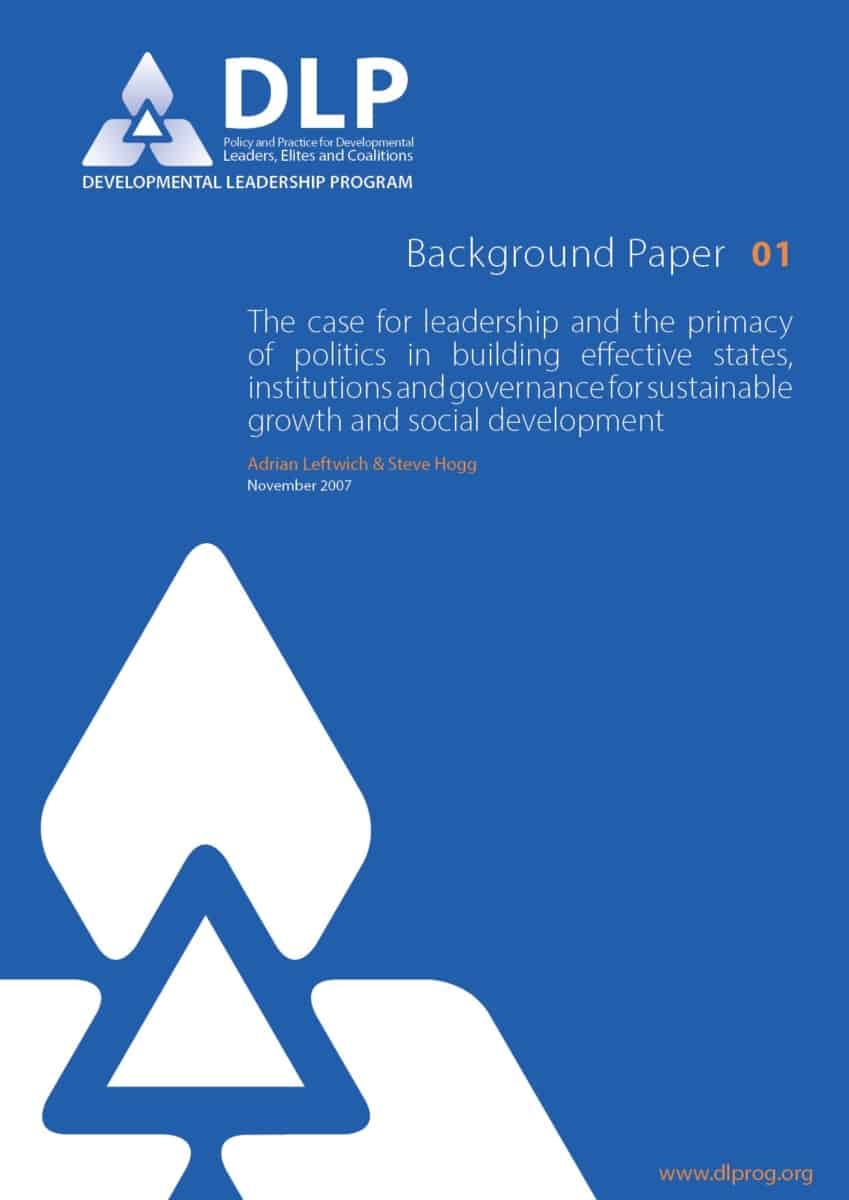This paper makes the case that effective leadership and the collective action of a relatively small number of leaders and elites, across the public and private sectors, are essential for building effective states, ensuring stability and promoting economic growth. We suggest that there is a significant gap in the international community’s knowledge and understanding of the importance of leaders, elites and coalitions in meeting the many different challenges of development in weak states and emerging economies.
We argue that successful development depends largely on political processes which involve diverse leaders and elites, representing different groups, interests and organizations, tackling a series of collective action problems in locally appropriate and feasible ways. But, in many developing countries, the limited quality and quantity of leaders and elites with the necessary vision, knowledge and experience means that their ability to shape the strategies and institutions that will mediate the relations between private interests and public goods is seriously compromised. Leadership, and its many forms, is a very complex phenomenon. These forms are everywhere influenced by historical, structural, political and cultural factors. But without effective leadership, current efforts to build effective states, promote economic growth and consolidate patterns of good governance will continue to yield often disappointing results.
Thus we argue that the international community needs to do much more to understand the provenance, nature and forms of effective leadership as it is central to the aid effectiveness agenda. We recommend that donors need to re-think and refine policies, strategies and programmes to support the emergence and expansion of pro-development leadership and growth coalitions.
This paper begins to build a case for leadership which will be developed further as the research and analytical programme unfolds. The first section of this paper sets out the central argument. It then goes on to sketch briefly the forms and functions of leadership, the role of elites in state building, how coalitions of elites forging agreed institutional arrangements can promote economic growth, the centrality of politics in these processes and the implications of this work for aid effectiveness.









